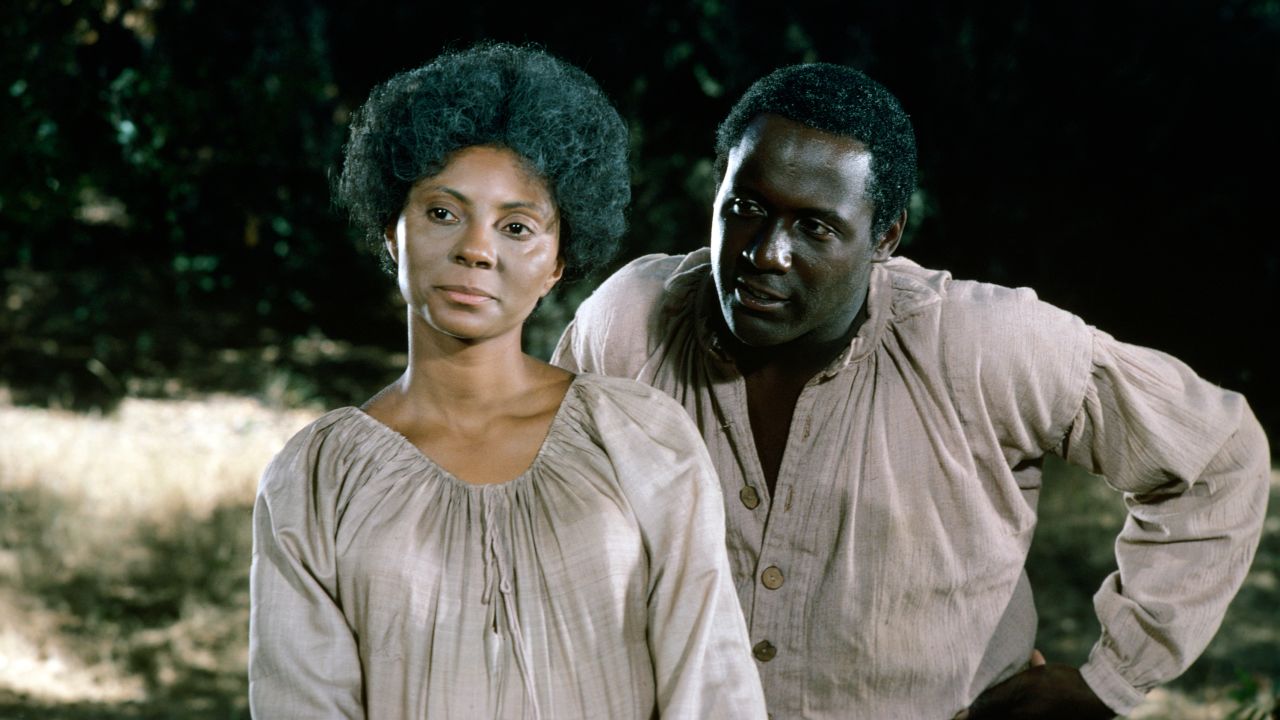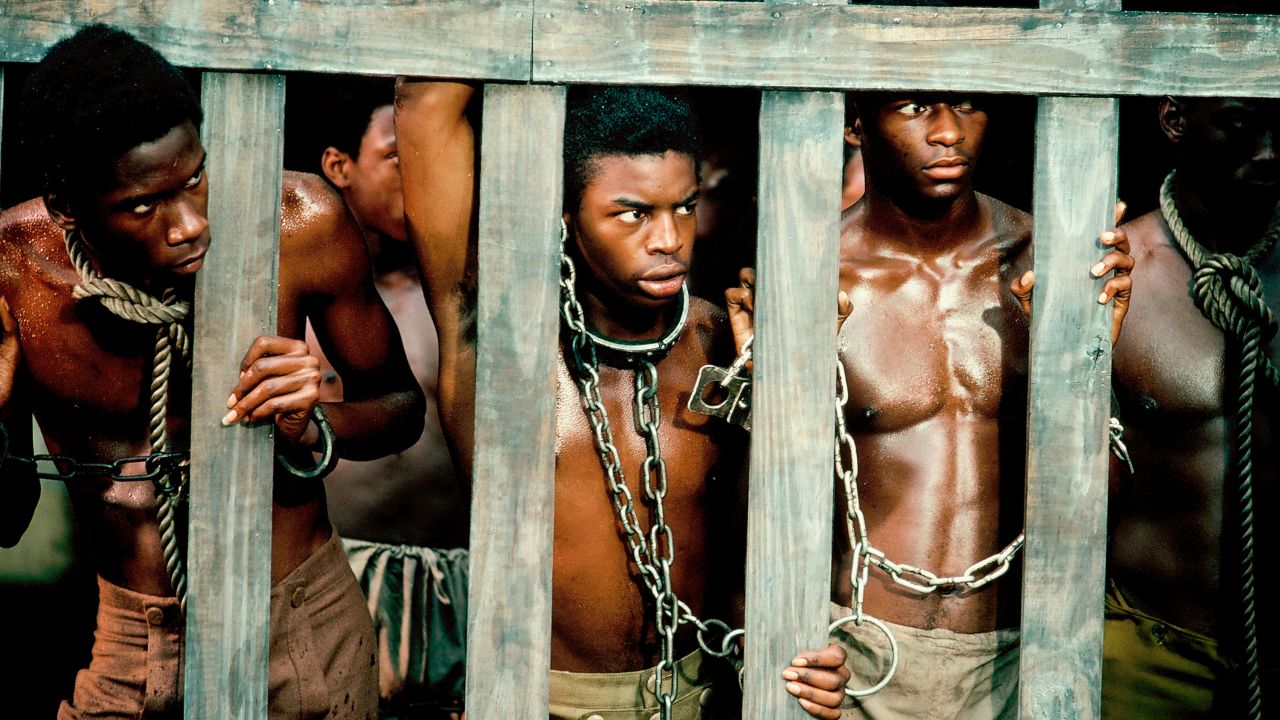“Drama Deconstructed,” the third episode of the CNN Original Series “See It Loud: The History of Black Television,” will air Sunday, July 23 at 9 p.m. ET.
CNN
—
When the miniseries “Roots” debuted on ABC in January 1977, it created a powerful moment in American culture that remains significant today.
The eight-night television event is one of the highest rated programs in history, with more than 100 million viewers tuning in for the final episode. “Roots” was nominated for 37 Emmy Awards and won nine. It also received a Peabody Award and the Golden Globe for best TV drama.
Based on the novel by Alex Haley, “Roots: The Saga of an American Family,” the series traces the capture of West African Kunta Kinte, a teenager sold into slavery in America, and spans 100 years to his grandson finally gaining freedom.
Professor of Media Studies at University of Texas at Austin Adrien Sebro attributes the success of “Roots” in part to its groundbreaking depiction of Black lives.
“It played a huge role in how we view television; how Black life became, you know talked about in truth, about how Black lives came to America. And it really set the stage for the breadth and depth of storytelling that can be done on television,” Sebro told CNN in an interview this week.
Prior to the debut of “Roots,” so much of Black life on television had centered around sitcoms like “Sandford and Son,” “Good Times” and “The Jeffersons.” “Roots” was different because the brutal realities of slavery in America was nothing to laugh at, especially for Black Americans.
“Roots” in the ’70s, it was explicit, but it wasn’t as explicit as what was actually happening. The horrors of chattel slavery and what they were doing to break the wills of these people that they brought over from Africa was too horrific to actually show,” Eric Deggans, media analyst and critic for NPR, told CNN. “Roots” was “talking about slavery and telling the truth about it,” he added.
It’s difficult to imagine that being the case today. How slavery was presented then would likely be challenged today. In some states, political officials are actively trying to change how America’s darkest history is presented in schools today.
“There’s too many ways I think, which folks are able to easily not talk about these things. And I have students who get to college that don’t know about the Ku Klux Klan, and who don’t know about the history of slavery,” said Sebro.
Deggans added, “the history of Black folks in this country, as horrific as it could be, it matters, it matters a lot. And you can’t really understand America if you don’t understand that journey.”
Deggans spoke with CNN about the legacy of “Roots.” The conversation has been lightly edited for length and clarity.
What is the significance of “Roots” in the history of Black television?
“ABC was concerned about creating a show that was so specific and explicit about slavery, they were concerned that people wouldn’t watch it. So rather than air it one day a week, as was normally the custom, they decided to take all the episodes and air them in one week, before the February sweeps ratings period would come out. So if people rejected the show, it wouldn’t affect the network’s earning power. But instead, it was the earliest example of binge viewing, because it strung all these episodes together in one week. And as word of mouth about how good the show was began to build, particularly in Black communities and communities of color across the country, it wound up being a ratings phenomenon. And it established this form that we now call the network TV miniseries.”
How did the show affect Black Americans?
“We’re used to White people tracing their lineage back to the folks who founded this country. We are not used to Black people being able to do that. Because of all the measures that were used to oppress Black people during chattel slavery times, it destroyed all those lines of history, and those family connections that you might otherwise have used to trace your lineage if you had come here by choice. So “Roots” gave Black people that. It gave them that gift that they could trace their heritage the same way White people have done for literally centuries.”

You mentioned the cast of “Roots,” what was important about how this cast was put together?
“They cast Black actors who were not considered militant. So, they weren’t interested in getting people like Harry Belafonte or Sidney Poitier, even if they would have done the show. They didn’t want to get people who White audiences thought were controversial. So, they went for people like Leslie Uggams and Ben Vereen, who were considered well-liked by White audiences. And then they found a bunch of White actors who were beloved by White TV audiences, and they cast them.”
Why do you think so many people tuned in?
“To see a Black person on TV doing something that wasn’t stereotypical or demeaning or insulting. And now we get this miniseries that they spent millions of dollars to make, featuring all these stars, that takes up a whole week of programming, that’s talking about slavery and telling the truth about it. It was just a phenomenon.”
So many parents and politicians are trying to ban books and teachings on the history of Black people in this country. Given the explicit and raw depiction of slavery in “Roots,” could it air today?
“Absolutely, I think ‘Roots’ could air today. There might be people in politics and areas of public life who would object to it for some reason. There are some real extremist people who want to deny that racism was brutal, or they want to deny that racism was a negative for Black people. But I think even amongst people who don’t believe in systemic oppression, and don’t believe in affirmative action, and don’t believe that people of color are particularly disadvantaged in the society, even among that group, I think most of them agree that slavery happened and that it was bad when it happened. The question is more, are we still struggling with the legacy of slavery?”

When it comes to the history of Black television, especially the genre of dramas, is the industry doing better or is there still work to be done?
“Yes. The industry is doing better. And, yeah, there’s still a lot of work to be done. If you look at what’s on television right now, the ‘Power’ series, ‘Lovecraft country’ on HBO, and you look at ‘Scandal’ and ‘How to get away with Murder’ and ‘Bridgerton,’ there’s a whole host of really great, really powerful dramas out there that star Black people and are centered on Black culture. But you can never get too sanguine about that, there’s always new places to go, and more progress to be made.”